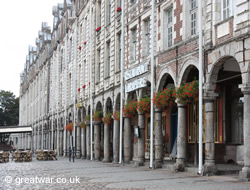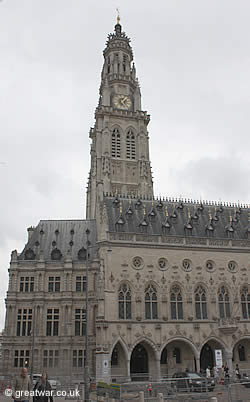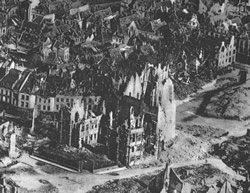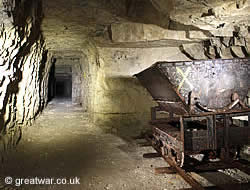Arras
Arras is the capital of the Départment of Pas-de-Calais in the region of Nord-Pas-de-Calais. It is located on the Scarpe River in the geographical region of Artois. The “s” at the end of the name of Arras is pronounced.
Origins of the Modern City

|
There was a settlement called Atrebates in the location of the modern city. During the Roman invasion of Gaul a Roman military garrison was set up also in this location.
Arras is a town with a complicated history, with its origins split between two communities of the Cité and the Ville (town) around the Abbey Saint Vaast. Over the centuries Arras endured sieges, occupation and annexation.
Underneath the town there are ancient cellars dug out of the soft stone called “Boves”.
Arras in the First World War

|
During the First World War Arras was evacuated by the French Army on 29 September 1914 and German forces entered the city. They were driven out by the French Army a day later on 30 September. The Front Lines remained close to the town for most of the war.
Underground City
The “Boves” were used by Allied forces for the duration of the war as shelter, living space and medical stations. These underground caves grew into a city underneath the shattered buildings above.
Tunnels were also excavated out of the chalk by British Army tunneling companies for the launch of the Battle of Arras on 9 April 1917. British troops taking part in the offensive against the German front in the sector opposite the city of Arras assembled in the chalk tunnels before the attack, leaving the relative safety of the underground tunnels on the morning of 9 April to attack the German line.

|
By the end of the war Arras was very badly damaged from the German artillery shelling and aerial bombing. The ancient buildings, the belfry and medieval gabled house fronts were rebuilt after the war.
Related Topic
Wellington Quarry — la Carrière Wellington
Visit this fascinating, recently discovered underground WW1 tunnel system as a guided, walk-through museum.


